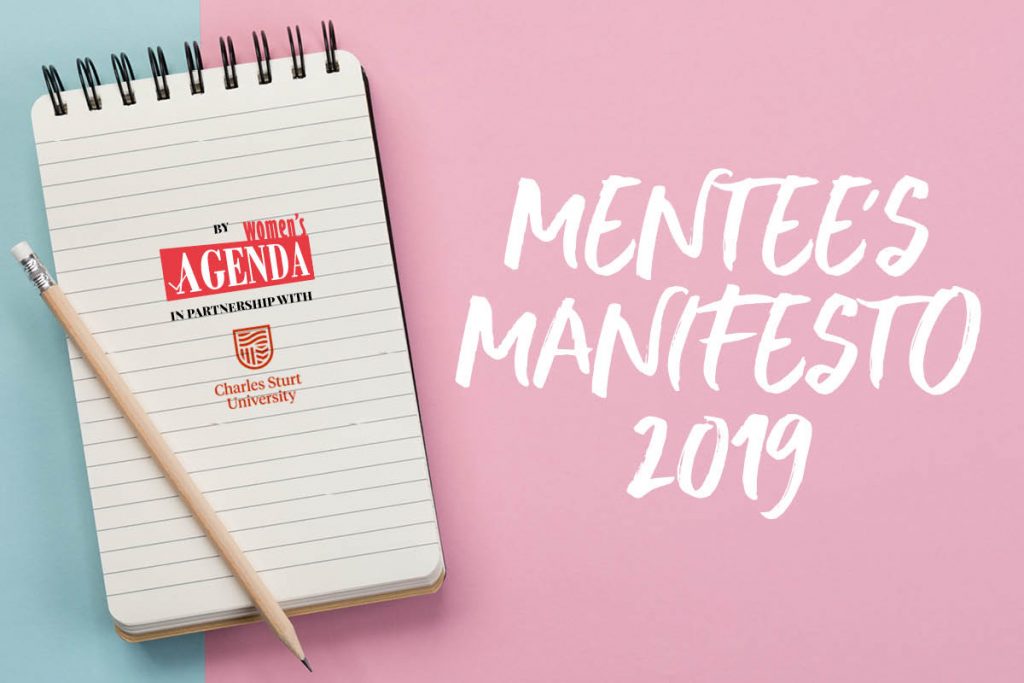Working with sponsors who is genuinely vested in your success can be one of the most crucial people in your network. They have the power to open doors to new opportunities and relationships that aren’t even on your radar. So how exactly does career sponsorship work?

This is part of the Women’s Agenda Mentee’s Manifesto, supported by Charles Sturt University. This article was first published by Women’s Agenda.
While mentors can offer you navigational support in your current role, sponsors help you navigate your career.
According to Charles Sturt University Executive Dean of Science, Megan Smith, sponsors widen your scope of opportunity. Smith is an active career sponsor for emerging talent but she too has experienced the power of sponsorship in her own journey.
“You do need people to help you see what is possible sometimes. I have had senior members of staff tell me, ‘This is an opportunity coming up, have you thought about this? Have you thought about being the head of school [because] there’s a range of people who might be interested in this job and I thought you might be one of those people?’”
Looking for protégés
A good sponsor will give you visibility, advancement, tools and resources. They have a vested interest in your career, says Zendesk’s managing director for Australia and New Zealand Amy Foo.
“Sponsors want to create protégés and succession planning. So they are typically your bosses.”
Foo’s current sponsor is Zendesk’s global chief financial officer, Elena Gomez, who’s based in San Francisco.
“She will never sugar-coat advice and she provides very clear navigational support and direction. If there are things I can’t see at eye level, she will tell me. She always gives me tools and resources that I ask for [and] she gets me to where I want to be.”
Your intentions matter
Working with a sponsor can reward you with immense confidence and support to build a successful career. But, says Foo, for this to be possible you need to be intentional.
“Express intention to mentors and sponsors who you think will be able to provide support and navigational ideas to you and indicate the cadence that you’d like to meet them. And when you meet them, express the outcome that you’d like to achieve so that your mentors are clear, your sponsors are clear, and they will be able to guide you better.”
Don’t self-censor
Sponsorship often develops by senior staff reaching out to you, so it’s important to build meaningful relationships with your leaders early on. Megan Smith advises that you never ‘self-censor’ who you connect with as you move along your career.
“There’s often a misconception that people who are senior won’t have time for you. [But] people are really genuinely interested, particularly, in people who want to progress themselves.”
Amy Foo also believes it’s a big mistake to assume that people like your CEO don’t have time for you.
“Be brave and speak up to people who may be out of reach. Women have a choice in sponsorship, mentoring and getting the right cheerleaders in their lives. We all have a choice, we just have to understand it and exercise it.”
Spark their attention
As an active sponsor, Smith keeps a number of staff on her radar for when new opportunities come across her desk. People who show capabilities in leadership and problem-solving always spark her attention.
“They’re people who want to improve themselves. They have a vision and a goal for where they’re trying to go, they think about what they’re doing right now and they want it to be better. They are people who actually listen to other people, try and form relationships, try and form groups, try to solve problems.
“Recognise and take advantage when people are sponsoring you.”
Get supported to study
Support is just as important when you study as it is in your career. That’s why, when you choose to study with Charles Sturt University, we’ve got your back from day one.


You must be logged in to post a comment.